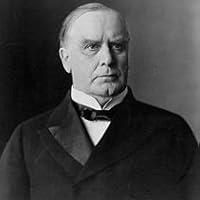
William McKinley
关于作者
William McKinley was the 25th President of the United States, serving from 1897 until his assassination in 1901. He was a prominent figure in the late 19th century, known for leading the nation into the Spanish-American War and for his support of protective tariffs to bolster American industry. McKinley's presidency was marked by economic growth and the expansion of American influence overseas. He championed the gold standard, which played a crucial role in shaping U.S. monetary policy during his time in office.
Born in Niles, Ohio, McKinley rose through the ranks of politics, beginning his career as a lawyer and a soldier in the Civil War. His political acumen led him to serve in the U.S. House of Representatives and as Governor of Ohio before becoming President. His leadership during the Spanish-American War significantly boosted his popularity. However, his life was cut short when he was shot by an anarchist in 1901, ultimately leading to his death a few days later. McKinley's legacy includes a strong emphasis on economic prosperity and foreign policy that expanded America's role on the world stage.